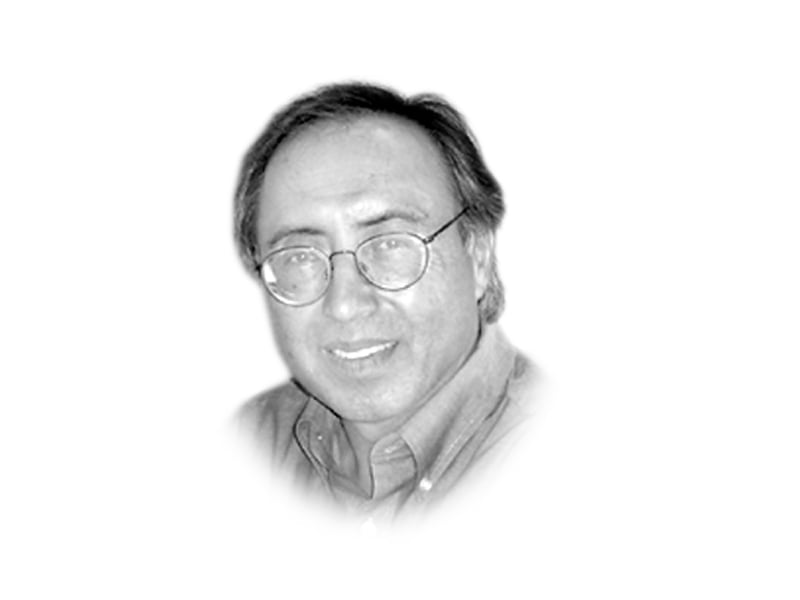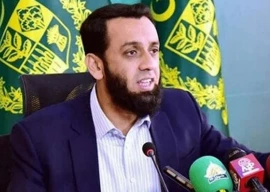
With the emergence of political parties, though weak, candidates with even stronger social bases have to wear a party tag or label to contest elections. In other words, he or she must get the nomination of a party. In the last few days, we have seen thousands of hopeful candidates filing applications with political parties to nominate them in constituencies of their choice. How do parties nominate candidates in Pakistan? It is a simple process. Each party with a strong hold over the party apparatus and all layers of its organisational hierarchy establishes parliamentary boards. The top party boss — usually a family patriarch heading the party — nominates his trusted cronies, actually yes-men, to the boards. This makes the parliamentary boards dependent on the “great leader”, as they have little choice in selecting candidates except offering their advice and making recommendation that can be turned down or upheld, depending on the view from the top man.
The nomination process, through this system, opens up all avenues of corruption. It starts when the party bosses ask for “donations” to the party fund. The process is far more corrupt when it comes to the nomination for senate seats for which the electoral college is the provincial assembly that elects candidates on a proportional basis. In the past, candidates without any political credentials or even past affiliation with the political parties have become senators after making massive “donations” to the party fund. In our political culture, with its weak institutions of accountability, such “donations” are investments and not expenditures.
Not all nominations for senate or assembly seats at the provincial or national level are made in exchange for “donations”. For the assemblies, parties actually favour candidates who have a strong enough social base in a constituency to win. They hardly bother about character, integrity, competence or experience. Can he win is the question, and if the answer is yes, he or she is the candidate. Most of these candidates are not raw hands. They have worked very hard in a competing political environment in the constituency to get attention and rise high in the estimation of the political parties. Just being a member of a caste or owning land is not going to make any candidate a winning horse. What matters is service to the community. It has created a demand-response nexus at the constituency level.
No matter what the personal merit and strength of each candidate, the nomination process is not democratic. In established democracies, the electorate in a constituency have the right to nominate candidates for any public office. In Britain and the United States, people do it by voting through a system called primaries.
I understand our social and political realities are different and our democratic practices, norms and institutions are weak. As building democracy requires conscious measures, constructive ideas and political education, we must challenge undemocratic practices of the “democratic forces” — the nominations. Without internal democracy, political parties will remain dynastic, resembling a family business.
Published in The Express Tribune, April 2nd, 2013.
COMMENTS (9)
Comments are moderated and generally will be posted if they are on-topic and not abusive.
For more information, please see our Comments FAQ

1725366721-0/kyle-(1)1725366721-0-165x106.webp)
1731410017-0/BeFunky-collage-(45)1731410017-0-165x106.webp)

1732520496-0/BeFunky-collage-(86)1732520496-0-165x106.webp)
1732696613-0/BeFunk_§_]__-(59)1732696613-0.jpg)
1732622842-0/Express-Tribune-(9)1732622842-0-270x192.webp)


1732701958-0/BeFunk_§_]__-(61)1732701958-0.jpg)
1732705114-0/Untitled-design-(7)1732705114-0-270x192.webp)






Except when in the West - the capitalist control the democracies. As illustrated by the bailouts and what goes on during election funds.
Why Democracy? Why not Caliphate - Is the question we should be asking!
For Internal Democracy the credit goes to PTI because of its intra party elections. pti have elected 80,000 office bearers. PTI now is the only party which have regional and district leadership.
Mr Rais and ET editors, there is no such thing as a Primary in the UK voting system.
You write "In Britain and the United States, people do it by voting through a system called primaries." Primaries are not possible in countries with dozens of parties not 2 or 3. "Without internal democracy, political parties will remain dynastic, resembling a family business." Why would you never write about lifetime party chiefs of all the parties? Why is that any better than family politics?
@sabi: I agree with you 100%. Thanks for mature comments. I am impressed. Regards, M
They are great dynasties of political families all across the world, yes, also in the US and UK. No one should have limited options just because of their last name or who their father or grandfather/mother is/was. What you advocate is romanticised rhetoric that if we just got rid of certain families everything is okay. However, that sends a wrong precedent. Instead, as long as the law is supreme and everyone plays within the same rules and norms your last name should not matter. However, in reality its access to economic resources, political and social influence that leads to mass inequality in political access. You would have to be very naive to think that the 2 party state of US democracy and its "primaries" are inherently democratic or the non-existent primaries in Britain.
Lets give credit where due. Well Done PTI
Problem with this part of the world is,everybody wants his/her own concept of democracy and failing to see it happening becomec a victom of frustration.This yielding frustration thus becomes-a fuel- for non democratic forces to intervene and roleback the whole system.Wise thing to follow is to trust the system and leve it to elected representatives to adress any flaw in the system.It takes time for the system to evolve to full maturity.We have to show patience.And let us be sure that democracy will indeed deliver.
Nawaz Sharif does that as all PMLN boards have been constituted in "yes-man" way. All provincial presidents including Shahbaz have members on the board that awards tickets who are second-grade party leaders and are only there to ensure Nawaz has final say on the matter. Even though the party provincial presidents don't agree they have been repeatedly forced to adhere to what the centrally planned leadership of Nawaz's cronies who do not havw independent thought in the party suggests. Funnily enough, even Shahbaz has been complaining about this dependency on Nawaz at such matters.